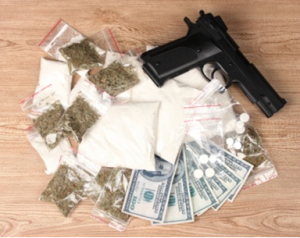News
Latest Lion Aid News
The Illegal Drug Trade and the Illegal Wildlife Trade: Are they Comparable?
Thursday 7th February 2013
|
No animal products here
There have been many comparisons made between the illegal drug trade and the illegal wildlife trade. Some are relevant and some are not, but overall we must not be too eager to compare apples and oranges though both are fruits. The similarities are many, including that the illegal wildlife trade now involves organized criminal cartels who are well funded and often better armed than their opponents, that the traffickers rely on corruption and bribes to conduct their business (including crooked police, prosecutors, customs and politicians), that the kingpins are rarely caught, that the trade (especially in rhino horn and ivory) is immensely profitable, and that those trying to prevent the trade are often killed. Drug funds supply terrorist groups like the Taliban and Al Qaeda and ivory and rhino horn funds similar groups like Al-Sabab, the LRA and the Janjaweed as a short list. Drug funds, like the illegal wildlife trade, also enrich those so well placed in Governments to be considered above the law. The differences are also many. There is, as far as I am aware, no drug agency like CITES seeking to control illegal trade while simultaneously allowing legal ivory and rhino horn sales to confuse the market. The illegal drug trade is prosecuted reasonably well – in China, Vietnam, Thailand and the Philippines those caught with drugs and not well enough connected are given death sentences or long incarcerations. Illegal wildlife traders are hardly prosecuted, and in all those countries listed above, the trade in ivory and rhino horn is allowed to take place. The drug trade is prosecuted at source and at end markets, but the illegal wildlife trade is not. The authorities in destination countries must know this commerce stems from illegal trade – China received some ivory in the legal sale approved by CITES in 2008, but that stock of legal ivory is certainly not supplying all the shops five years later? Or is the appropriate monitoring of such sales by a government capable of scrutinizing every e-mail and text message and bank account of its citizens too much to ask? Another difference is that there is not a single illegal drug made from an animal (OK, some people like to get high on licking toads, but they are just weird). Opium, heroin, cannabis, morphine and cocaine all come from plants. There are magic mushrooms that can be ingested. Many illegal drugs are now made in laboratories by synthetic processes. But illegal wildlife products come from an animal and in the case of elephants and rhinos and tigers and bears and lions they cannot be grown in a field or a pot for a few months and taken to market. One could actually say that the production of drugs is sustainable in terms of a market demand, but the production of ivory is certainly not. And strangely, people blame the consumers of the illegal wildlife trade in China and Vietnam for decimating Africa’s elephants and rhinos. This is a big disconnect. Time after time, it has been shown that Africans themselves are involved in the supply. Undercover investigations show it is easy to buy illegal ivory in many African countries from African dealers. Not one ivory or rhino poacher caught in the field in any African country is a Chinese or Vietnamese national. We have to accept that in very basic terms, the supply is facilitated by Africa. The poachers are African, the middlemen are African, the corrupt officials and politicians are African. The traders, receivers, moneymen and end-consumers might not be. But one hand washes the other and with no overt will on the part of African governments comes no progress in resolving the illegal wildlife trade. Blaming someone else has always been an easy way out and these days has sadly become an accepted norm. But in terms of the illegal wildlife trade of ivory and rhino horn it does not happen without African complicity. Providers and consumers of illegal wildlife products should both accept responsibility for the trade. Right now African nations portray themselves as victims in a battle they cannot win. And win it they will not without cleaning up their own act first. Picture credit: www.worldpolicy.org Please support us if you can to conserve the remaining fragile lion populations. Thank you. Tags: CITES, China, Illegal wildlife trade, Vietnam, ivory, rhino horn, Thailand, Philippines, Illegal drug trade, Categories: Illegal Wildlife Trade |
Add a comment | Posted by Pieter Kat at 13:39




